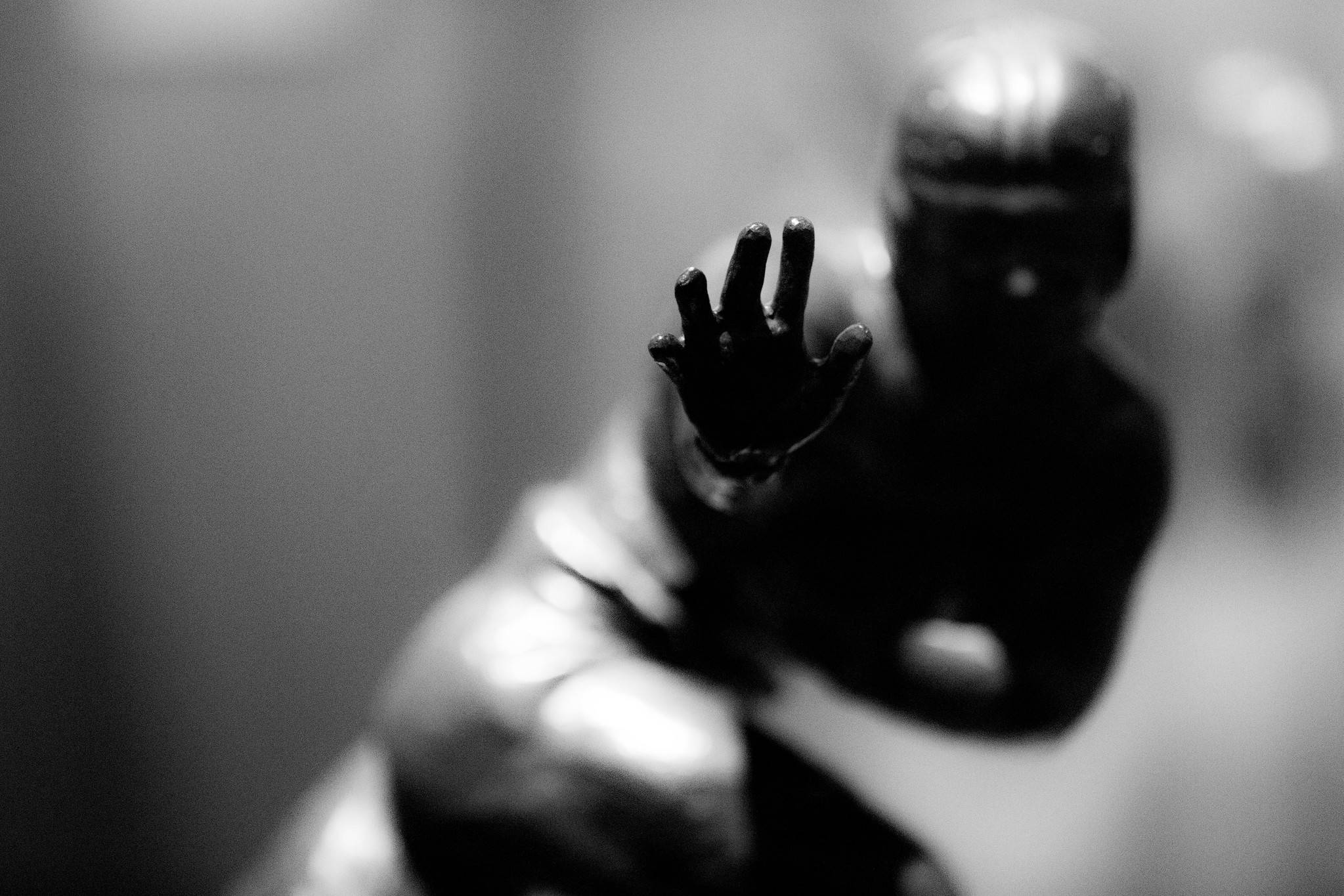I ran out onto the field to start the game. I paused to take in the roar of the largest crowd I had ever played for and the band’s resounding fanfare. After being overlooked my whole athletic career, I was finally being recognized as an All-Star in front of the whole county on this January night that would unknowingly change my life.
During the game, I was walking down the sideline when my name pierced through the tumultuous noise. “Camick! We need you on the field for kickoff!” the coach’s voice thundered.
I made my way down the field, taking my place at the 20-yard line. While the average football play lasts about four seconds, kickoffs take longer; the longer the play, the more unbridled, brutish chaos ensues.
As the kicker’s foot hammered the ball, 11 seconds of entropy was unleashed, irreversibly starting the 11 seconds that would change the trajectory of my life. I sprinted down the field, anchoring my feet in the ground to stop my opponent. But something was not right. I started falling backwards in what felt like slow motion.
I could feel my right lower leg starting to bend. And bend. And bend for an eternity before I finally hit the turf. Then, my only view through the bars of my helmet were the Friday night lights against the Friday night sky. There was no pain, only shock as I tried to wrap my brain around what just happened. I yelled out in agony as my athletic career came to a screeching halt.
As the play ended and the dust settled, I could feel the thousands of eyes from the crowd shift their laser focus onto me. Me, the wide receiver supposed to play at Johns Hopkins in the fall, was now frozen on the ground attempting to hold their fractured leg together.
After thirty minutes on the ground, a pity clap from the crowd surrounded me as I was wheeled away on a stretcher. The ambulance ride seemed to never end, but eventually I arrived at the local emergency department with my parents. I was in some pain, but I was trying to stay positive. This got harder as a full hour passed before any hospital staff came into my room.
Finally, someone came to take x-rays of my leg. I thought pain relief was coming. But instead, the worst pain I have ever felt engulfed my leg and my entire body when they moved my unsupported ankle for the x-ray. Some time later, the emergency medicine physician entered the room. Unfortunately for him, he walked into a firestorm of frustration as my parents unleashed their anger about my subpar care on him.
“He hasn’t gotten any pain medicine?” the doctor questioned, shocked. I noticed his face change from amicable to distressed as he realized someone had dropped the ball. He then stormed out of the room on a mission. He eventually returned with morphine for my pain, but this was not enough to rebuild the trust that had been lost. The situation only worsened when he returned an hour later to notify me and my family that I would have to spend the weekend at home with a leg in two pieces because there was no space in the hospital. Dejected, I went home and hobbled onto the couch, where I would stay for the next two days.
I had a lot of time to think during my two-day house arrest. After all, I couldn’t sleep with the pain and couldn’t move very far from the couch. My mind was held hostage by what had happened at the hospital. My first true interaction with the medical field was fraught with pain, disarray and disappointment. Was that really what the hospital was like all the time? Would I ever get better?
On Monday morning, we drove an hour to Orlando and learned that the hospital experience could in fact be much better. My parents wheeled me and my floppy leg into the orthopedic clinic of a new hospital. When the surgeon opened the door and saw me in my current state of discomfort and desperation, he was shocked. He patiently listened to my story in disbelief — he could not fathom how little pain medication I received and the overall delay in my treatment. The surgeon asserted he would be there for me and help me get to recovery. Surgery was scheduled that afternoon. Finally, I believed I would get better.
As I passed through this arduous experience, I realized what medicine should and should not be. Physicians should communicate with their care team and listen to their patient’s concerns. They should not have disjointed treatment approaches nor should they turn away patients in their time of need. Empathizing with and empowering patients at their most vulnerable is key to being an outstanding physician.
Thus, my experience of poor communication and lack of initial support as a patient is what compelled me to pursue medicine. As an aspiring emergency medicine physician, I want to ensure similar situations don’t happen under my watch or to my future patients. To prevent these situations, I will always prioritize listening to my patients and supporting them in their time of need.
Although I may never run onto a field amidst the fanfare and Friday night lights again, I will empower others and brighten their lives with my commitment to their care. Although one career ended, another was kicked off.
Image credit: “Football America” (CC BY-NC 2.0) by Thomas Hawk

